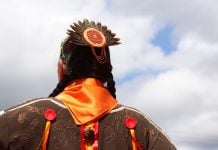Minnesota Gov. Tim Walz‘s appointment of two tribal leaders to the Minnesota Racing Commission (MRC) has been questioned by racetrack operators amid ongoing tensions around legal gambling in the state.
Walz has appointed Melanie Benjamin, who is ending a spell as chief executive of the Mille Lacs Band of Ojibwe, and Johnny Johnson, president of the Prairie Island Tribal Council, to the nine-member commission. They replace commissioners Roy Johnson and Dan Erhart, whose MRC terms have ended. The new appointees will begin service on July 1.
The Mille Lacs Band operates two Grand Casino-branded venues in central Minnesota, while Prairie Island operates one Treasure Island Resort and Casino site.
The two tribes are currently embroiled in a federal lawsuit with Running Aces Harness Park over gaming offerings in their casinos. Running Aces filed against major native tribes alleging that they have overstepped their authority to conduct gambling with some of the game options they offer.
Racetrack leaders call appointments ‘slap in the face’
Leaders of Running Aces Harness Park and Canterbury Park, another racecourse that falls under the MRC’s oversight, have criticized and questioned the appointments.
In particular, concerns have been raised over a potential conflict of interest. Benjamin and Johnson will have partial oversight over Minnesota racecourses at a time and track leaders cited the danger of the new commissioners being privy to confidential business information about track operations.
President and CEO of Running Aces Taro Ito called the appointments “a slap in the face to the Minnesota horse racing industry.” He highlighted the fact that Benjamin and Johnson manage casinos that compete with the tracks and do not have experience in the racing industry, unlike the commissioners they replaced.
Randy Sampson, CEO of Canterbury Park was quoted by MPR News as having said he does “not believe it is appropriate for competitors of the racetracks to serve in the role of our regulators.”
“It would be difficult to find a precedent for the recent appointments of long-time leaders of tribal nations that own two of the state’s largest casino operations as members of the Minnesota Racing Commission,” Sampson added.
In addition, five Republican state lawmakers have written a letter to Walz asking that the appointments be rescinded.
Walz insisted, as quoted by the Paulick Report, that the two new commissioners have “extensive experience in regulation, especially around gambling and they’re citizens and have every right to be on there.”
Racetrack gambling a hot topic in state legislature
Racetracks and tribes have been at loggerheads over legal mobile sports betting, which is currently the exclusive right of tribes. A bill pushed by Rep. Zach Stephenson proposing that pro sports teams and tribes should be able to apply for licenses to operate mobile sports betting in Minnesota did not pass before the end of the legislative session last month.
However, one bill that did pass was a ban on historical horse racing (HHR). That move was supported by the tribes but opposed by the tracks.
Racetracks have been pushing to be granted the right to offer additional gambling options to their customers to make their operations more sustainable. In April, the MRC approved HHR at Runnings Aces and Canterbury Park by a 5-1 vote but that decision received pushback from tribal officials who argued they weren’t invited to take part in discussions and argued that the games are direct competition to the exclusivity they have over slot machines at tracks.
Despite the commission’s approval, the legislature subsequently passed a new law banning HHR and similar offerings and also curbed the MRC’s authority to introduce new video gambling.














